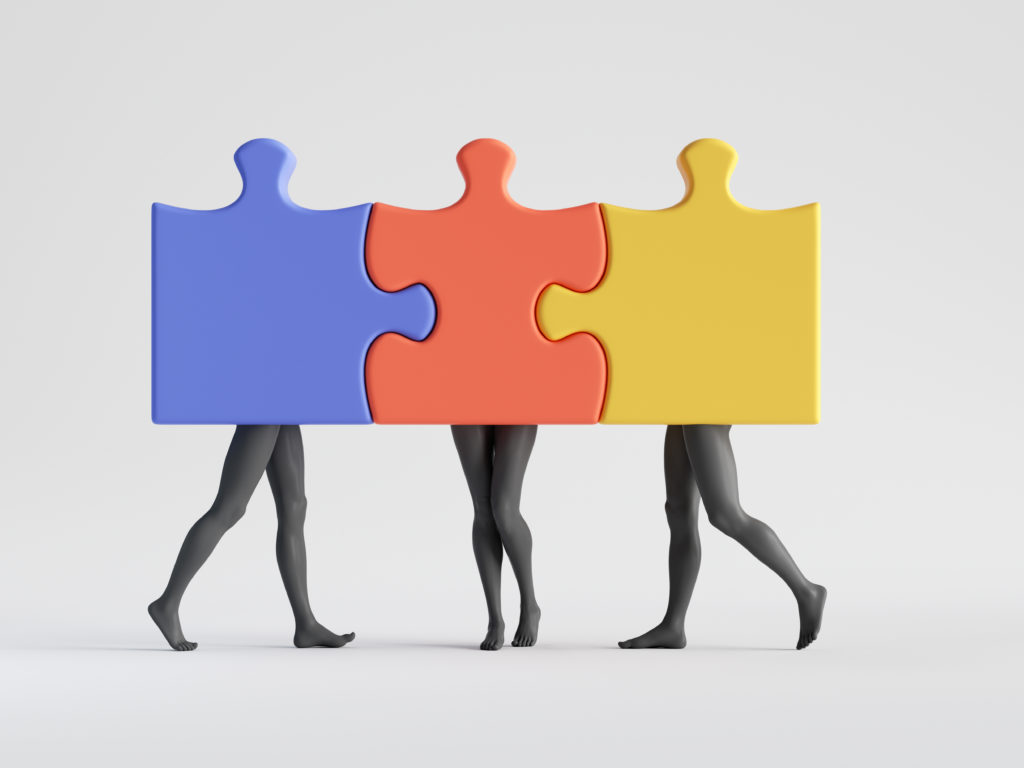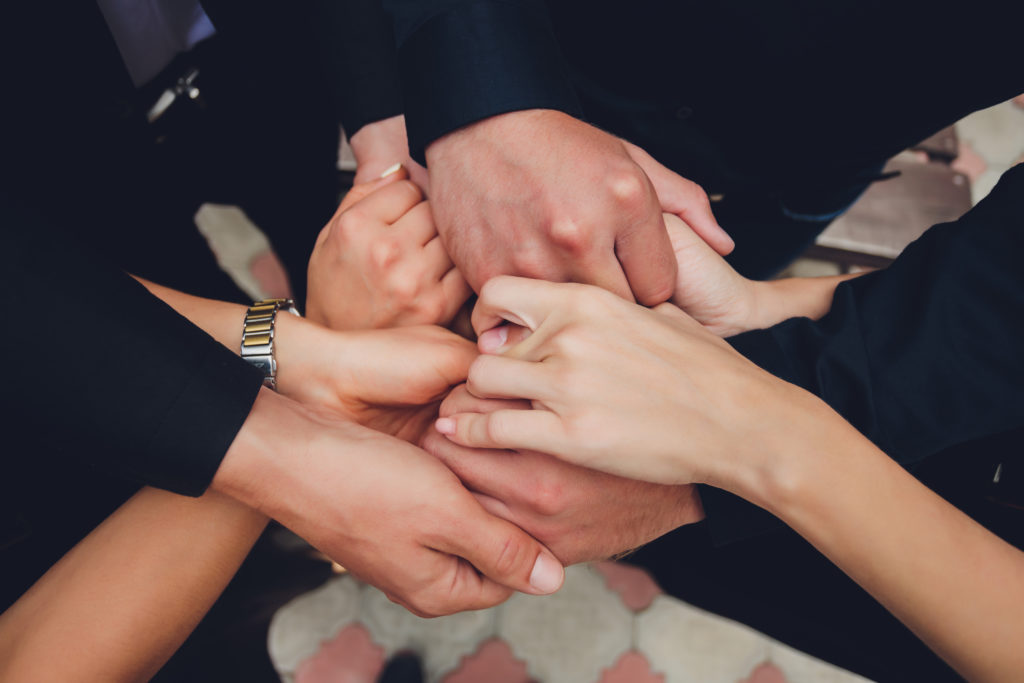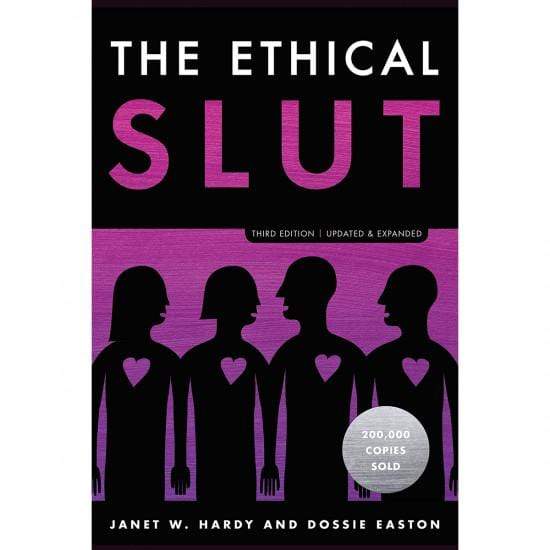
Welcome to Trystology Talk, where we shamelessly discuss sexuality in all of its expressions!
This month we open the roundtable to polyamory!
November 23rd is National Polyamory Day, and this hot topic has many thrilled, and others flat-out scared and confused. In 2021 we’re seeing celebrities from Bella Thorne to Will and Jada Pinkett-Smith proudly claim their polyamorous natures, sites dedicated hook-ups, and a portion of our society bucking against the societal norms of “traditional” marriage and partnership… which for some is incredibly uncomfortable. But why? And of course, what is polyamory, and what is it not?
If you’ve followed this blog for a while, you may know I’m a fan of words and their meanings, so let’s break down the word polyamory before we dive any further…
Poly-amory is literally defined as many loves, hence the title The Many Loves of Polyamory Explained.
It’s important to note the absence of the word “sex” here. I say this because our society often times hears polyamorous as synonymous with sexual deviancy, irresponsibility, or something inherently sneaky, which couldn’t be further from the truth. Whereas there’s no one way to be poly, (and there’s certainly no one right way to do it), the world of polyamory requires communication and consent above all else. It may surprise you to know polyamory requires its own ethics – a deep knowing of self, and a willingness to explore the individual ownership of our complex emotions, needs, and desires. Sounds healthy in comparison to the general assumption, doesn’t it?
Side note, I think it’s important to highlight one more thing before we expose the goods.
This blog is dedicated to shamelessly giving everyone the permission to enjoy the pleasure of their human experience. Beautifully so, we all share different expressions of this “being-ness.” This article is not written to convince the world that all people are poly, just as this blog is not written to convince anyone they’re gay, lesbian, bi, trans, queer, heterosexual, asexual, male, female, or non-binary. These articles are written to expose our community to the vastness which makes us human. Period. My personal fascination with human sexuality is rooted in a deep awe of our collective ability to create something out of nothing.
To me, sexuality encompasses ultimate creativity. Viewing it as such has allowed me to see, know, and love aspects of myself and my own creations with more honor, respect, and compassion than I ever thought possible. It’s to this end we write, we educate, and we present Trystology as a safe space for everyone. That said, let’s carry on.
We’ll start by taking a more fluid approach to another word – commitment.
This word can feel limiting and triggering for many of us, for adult life requires a lot of it. We commit ourselves to our work and bills. We commit ourselves to our families and friends. If someone has done something society deems wrong, they’re committed, just as traditionally partnered couples can be committed to one another. But because of the binding vibration we feel when we hear this word, as like so many others, we tend to avoid our true understanding to what we are personally committed to doing, accomplishing, and succeeding in our lives. To quote an extremely well-written sentence from The Ethical Slut, “People can make commitments to each other in numbers greater than two.” Our commitments, just like our desires, vary and are vast and many.

Yes, for some, the commitment of love and sexuality authentically surpasses monogamy, and may add a third partner, a fourth, or a general openness to a greater community. Sometimes this multi-relationship status is completely void of sex, primarily focusing on the intimacy of emotional connection. For some, sex is seen as a friendly past-time, like shopping or grabbing coffee. Others see relationships as hierarchal and actively maintain their primary relationship while engaging sexualluy in secondary relationships on the side. To add to the mix, triadic, (party of three) and quadratic, (party of four) relationships involve long term commitments with a greater group. These are all expressions of polyamory, making this particular term immune to singular definition.
The lingering question is how can this possibly work?
Even for our monogamous crowd, I ask you the readers to count how many intimate relationships exist within your partnership. If you’re coupled, you may have said two, yours to your partner’s, and your partner’s to you, but we’re here to challenge that. Even in traditional coupled partnership, four relationships exist, ie A-B, B-A, A-A, and B-B. To be less cryptic, our partners have a connection with us, we have a connection to them, yes. But each partner also has a separate connection to themselves. We even experience this in our closest friendships! And this fact becomes paramount within any polycule for some major and important reasons! Navigating these waters is exactly why polyamory requires communication and respect, while owning what belongs to ourselves independently!
Remember, polyamory simply means many loves, and in light of many loves, we must face self-love as an integral aspect of our lives. Why?
Well, let’s talk about jealousy, and our collective harsh judgement of this particular emotion.

“They’re just jealous,” is a common validating term we say to ourselves to self-soothe while degrading others, when there’s nothing so simple about this emotion! Jealousy is a natural expression, like anger or sadness, that isn’t bad or good. It just is. And when we experience it, we can either allow it to overcome our entire being and close us down, or we can take it as the presence of a teacher perhaps exposing something our being is craving to overcome. As with all things in life, do we own it, or allow it to own us?
Jealousy in polyamorous partnerships comes up, just like all other relationships!
It just does. This is why communication, consent, and boundaries are so necessary to achieve partnered bliss. When we experience jealousy, it usually comes with some friends, namely shame, guilt, blame, and denial. This fun mental party we’ve all experienced is, sorry to say, a natural teacher who will continue teaching us until we decide to listen or completely shut down. Poly couples commit to openness around this emotion. Instead of villainizing jealousy, they choose to embrace it together, challenging all partners to grow into a deeper understanding of self, and the struggles of humanity we all inevitably face.
Poly couples also commit to conflict resolution in order to keep vulnerability safe and sacred.
None of us are perfect. If you’ve read previous articles, you may know I view ‘perfect’ as one of the worst words in language today. Conflicts come up! But what do we do with them when they occur? And how do we honor our feelings without destroying another person’s confidence or the opinions they’ve constructed along they’re own life path? Personally, the people I love most in this world are also the ones I’ve fought the most. Not to say I seek a fight to validate my love through fights! At all! But if I have the confidence to fight a loved one, it’s usually because I care enough to do so, and feel safe enough to share what’s actually on my mind.
When maintaining multiple partnerships, this level of vulnerability becomes crucial. We all have bad days. We all struggle with certain things. Intimacy, above all else, involves a general acceptance of this so we don’t have to go at it alone.
Which brings us to agreements and consent in action.
Every partnership consists of two or more unique human expressions, and we all have things we are willing to do, accept, experience… and those we aren’t. Agreements and consent are important for all partners, but become especially highlighted within the realm of polyamory. Poly relationships are not inherently abusive or neglectful. They’re honoring, both of self and of union, by establishing clear and followed agreements based upon each members’ consent. And we all have something to learn here, which is this. Our thoughts matter. Our feelings… matter. Our mental health and wellbeing matters. Big time. And if we can’t cultivate a voice to stand up for the things that matter most to us, how will they matter to anyone else?
To our polyamorous crowd and clientele, we want to offer a special thanks.
Even for those of us who identify as monogamous, you have shared incredible wisdom and knowledge surrounding boundaries, consent, and how to view our relationships with intimacy as something we foster from within. For more information, we Trystologists highly suggest finding a copy of The Ethical Slut, written by Janet W. Hardy and Dossie Easton. Their writing inspired so much of this article. We thank these authors for their dedication to a life lived on their terms! It has given their readers permission to do the same.

As always, we love our community, and feel incredibly blessed to share dynamic aspects core to this human experience. May you all see yourselves as worthy of your love, no matter how you define it. As far as we’re concerned, you have full permission to live your life on your terms! And we’re honored to remind you any time we can.
